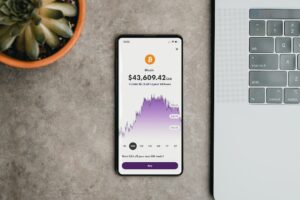The foreign exchange (forex) market is the largest and most liquid financial market in the world, with daily trading volumes surpassing $6 trillion. It is a decentralized market where currencies from all around the world are bought and sold. Forex trading is heavily influenced by a wide range of factors, including global events. These events can have a significant impact on currency exchange rates, leading to volatility and creating opportunities for traders.
Global events can be categorized into two main types: economic events and geopolitical events. Economic events include data releases, such as economic indicators and central bank decisions, while geopolitical events encompass political developments, conflicts, and natural disasters. Both types of events can affect forex trading markets in various ways.
Economic events play a crucial role in forex trading as they provide insights into the health and performance of countries’ economies. For instance, the release of key economic indicators like GDP growth, inflation, and employment data can have a substantial impact on currency exchange rates. Strong economic data often leads to a currency’s appreciation, as it signals a healthy and robust economy. Conversely, weak economic data can result in a currency’s depreciation.
Central bank decisions are another critical economic event that can greatly influence forex markets. Central banks, such as the Federal Reserve in the United States or the European Central Bank, have the power to set interest rates and implement monetary policies. When a central bank raises interest rates, it typically leads to an increase in the value of the respective currency. This is because higher interest rates attract foreign investors seeking better returns, increasing the demand for the currency.
On the other hand, geopolitical events can create significant uncertainty and volatility in forex markets. Political developments, such as elections, referendums, or changes in government policies, can lead to fluctuations in currency exchange rates. For example, the Brexit vote in 2016 caused a sharp decline in the value of the British pound as uncertainty surrounding the UK’s future relationship with the European Union increased.
Geopolitical conflicts and natural disasters also impact forex markets. These events can destabilize economies, disrupt trade, and lead to capital flight. In times of geopolitical tensions, investors often seek safe-haven assets, such as the US dollar, Swiss franc, or Japanese yen, causing these currencies to appreciate. Natural disasters, such as hurricanes or earthquakes, can have a similar effect as they can disrupt supply chains and cause economic damage.
Traders and investors closely monitor global events and their potential impact on forex markets. They use various tools and strategies to analyze and interpret the information provided by these events. Technical analysis, fundamental analysis, and sentiment analysis are some of the approaches employed by traders to make informed trading decisions.
Technical analysis involves studying historical price patterns and using indicators to identify potential trends and reversals. Fundamental analysis, on the other hand, focuses on analyzing economic data, central bank policies, and geopolitical developments to assess the intrinsic value of a currency. sentiment analysis involves gauging market sentiment through news sentiment analysis, social media sentiment analysis, and other sentiment indicators.
When trading forex, it is crucial to stay updated with global events and their potential impact on currency exchange rates. Traders should have access to reliable news sources, economic calendars, and market analysis to make informed decisions. Additionally, risk management strategies, such as setting stop-loss orders and using proper position sizing, are essential to protect against unexpected market movements caused by global events.
In conclusion, global events have a profound impact on forex trading markets. Economic events, such as data releases and central bank decisions, provide insights into the health of economies and can influence currency exchange rates. Geopolitical events, including political developments and natural disasters, create uncertainty and volatility in forex markets. Traders need to stay informed and use appropriate analysis techniques to navigate these events successfully. Additionally, risk management is vital to mitigate potential losses caused by unexpected market movements.






